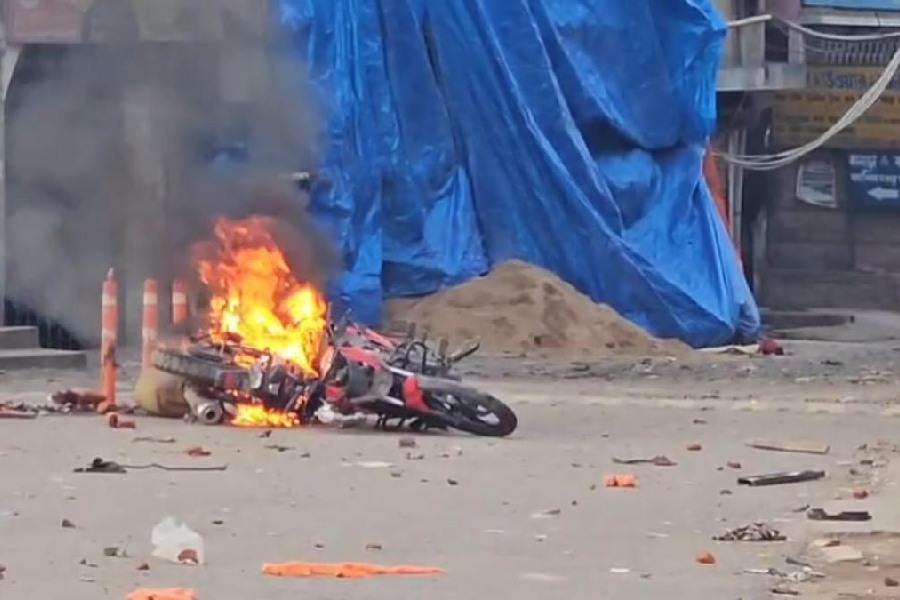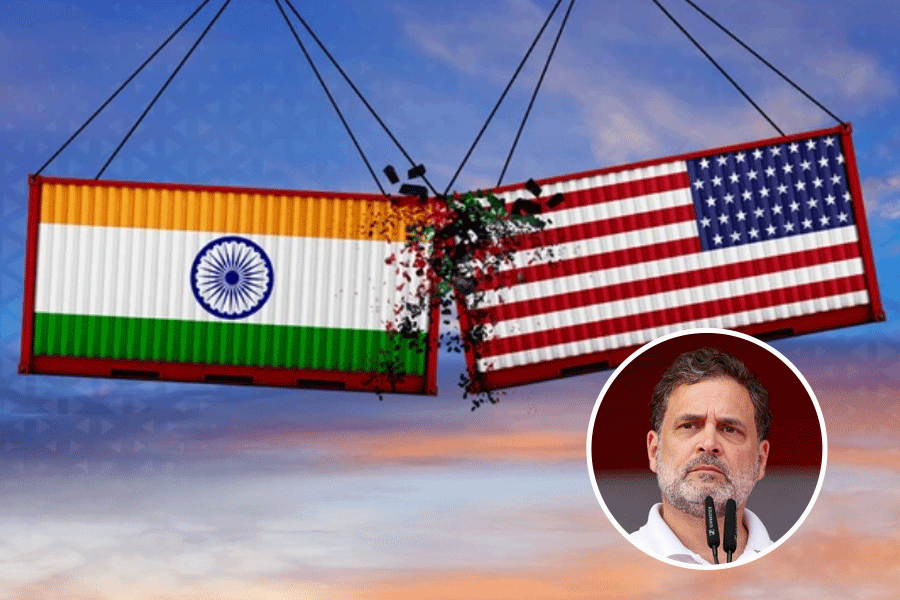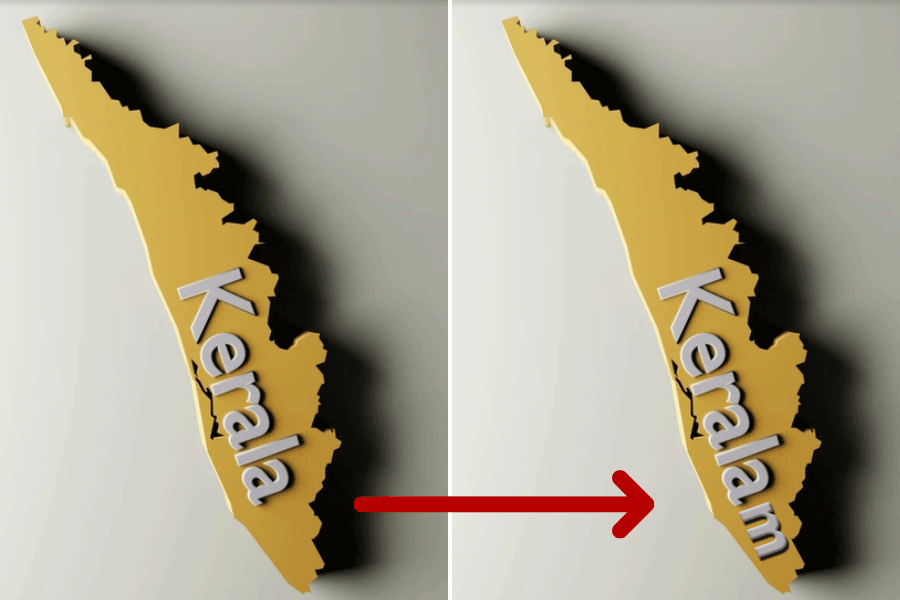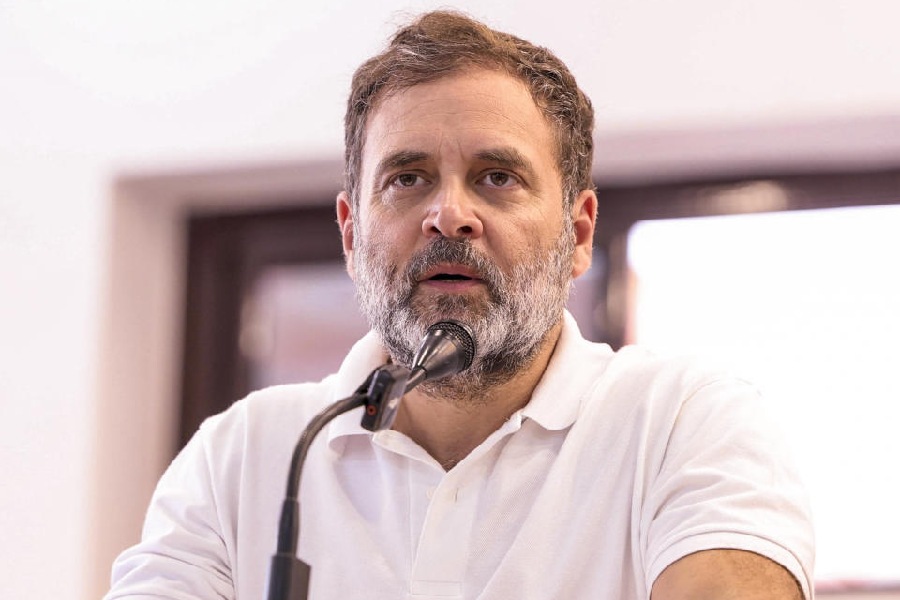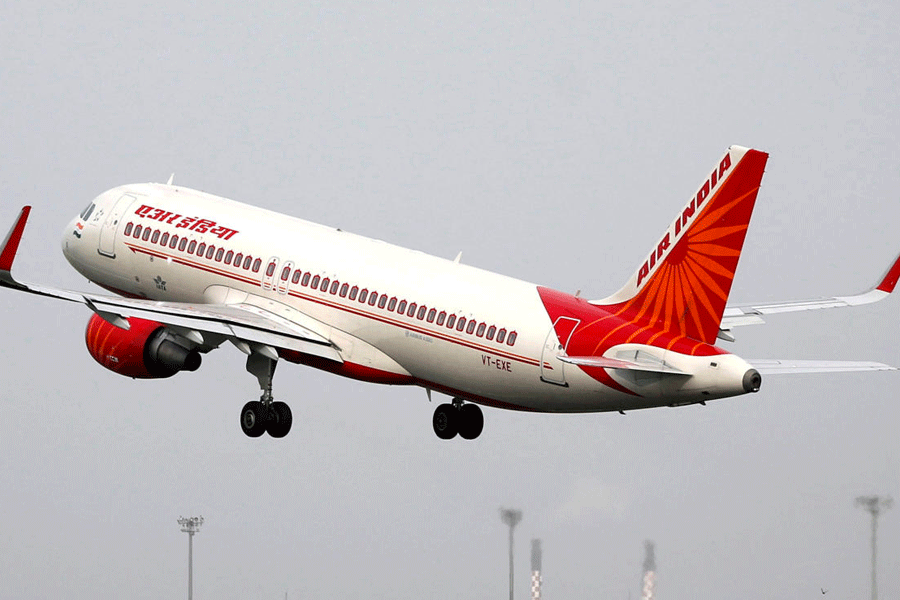The disconnection of local Trinamul Congress leaders with common people, particularly Muslims, in Samserganj had left the party unaware of the buildup to the massive waqf protests that ultimately turned into a communal clash.
Since the onset of violence in Murshidabad, several local TMC leaders, including
Jangipur MP Khalilur Rahaman and Samserganj MLA Amirul Islam, have accused outsiders of hijacking the waqf protest and turning it into destructive violence.
Many TMC leaders have questioned how the local leadership in Samserganj — home to four lawmakers — failed to anticipate such a large gathering and questioned the party’s disconnect with the local people, particularly the minorities.
“Eighty per cent of the population in Samserganj and Suti police station areas are Muslims. There is complete TMC dominance. So, how could the leaders not have known about the gathering of thousands of people, including outsiders?” asked a senior TMC leader in Samserganj.
“It’s because the leaders are overconfident about their vote bank and have stopped meeting people regularly. Earlier, there was a practice of meeting people at mosques and other religious gatherings to understand public sentiment. But now, leaders don’t make time for such public interactions,” the leader added.
Multiple sources claimed that, seizing on the opportunity created by the disconnect between the local leadership and the community, some splinter Islamic outfits became active in the area and filled the void left by party leaders. There are allegations that infighting among TMC leaders is one of the reasons behind the party’s waning influence in the region.
A source claimed that the Popular Front of India (PFI), currently a banned organisation, once had a strong organisational setup in Samserganj, Suti and a few other pockets of Murshidabad. After the ban, those associated with the group formed several splinter Islamist outfits and continued pursuing their agendas.
These groups are suspected of playing a role in inciting a communal clash in a region where Hindus and Muslims had lived peacefully for years.
“Had the TMC leaders been listening to the voices of common people, they might have learned what was coming,” said the source.
A source said splinter Islamist groups became active, spreading rumours about the amended waqf law and instigating violent protests.
“We’ve learned that some groups are spreading false information about the waqf Act to mislead people. So, we have launched a campaign urging people to stay away from such instigations and protest peacefully, demanding revocation of the Act as we need the help of everyone to save our rights,” said Bakibillah Molla, president of the All India
Imam Association.
While the BJP accused the TMC of sheltering members of banned organisations that incited violence against Hindus, TMC leaders alleged that the central government used its agencies and infiltrated troublemakers from outside the country to tarnish Bengal’s image.
The Murshidabad district CPM leadership named a few Islamic organisations allegedly hand-in-glove with the TMC to create a reign of terror in the area.
“These (Islamist) organisations, operating without flags and backed by the TMC, organised the protest. The entire episode was pre-planned, as the ruling party wanted to divert attention from the agitation over the dismissal of 25,753 teachers and non-teaching staff, with the help of the BJP...,” said Jamir Mollah, CPM’s Murshidabad
district secretary.
When asked about the allegation of being disconnected from the common people, TMC’s Jangipur MP Khalilur Rahaman said: “Whatever allegations you’ve heard are not true. Our leaders are well-connected with the common people.”

